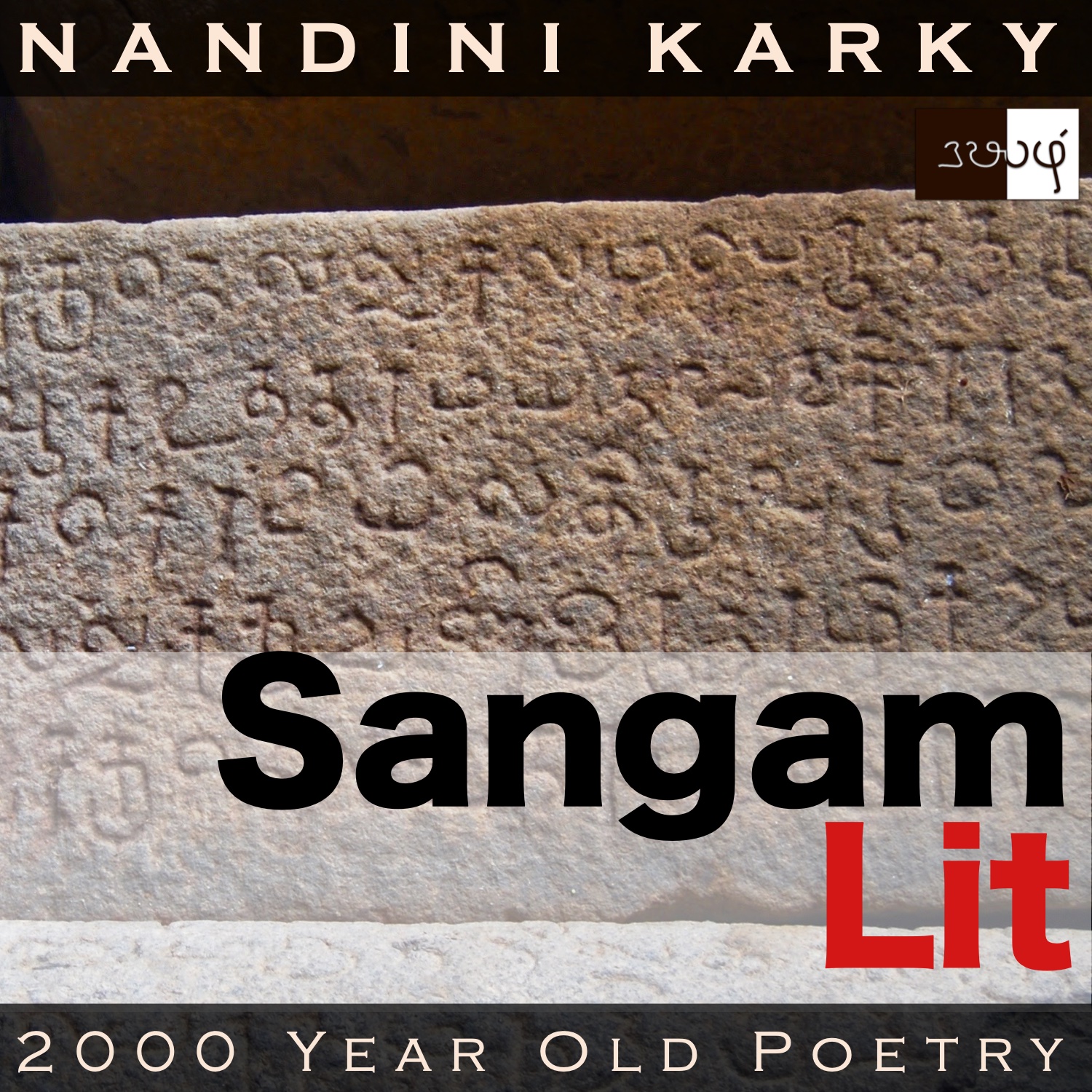Podcast: Play in new window | Download
Subscribe: Apple Podcasts | Spotify | Amazon Music | Android | iHeartRadio | TuneIn | RSS | More

In this episode, we learn of the fairness and fame of a king, as depicted in Sangam Literary work, Puranaanooru 10, penned about the Chozha King Neythalankaanal Ilanchetchenni by the poet Oonpothi Pasunkudaiyaar. Set in the category of ‘Paadan Thinai’ or ‘praise of a king’, the verse describes the qualities of justice, hospitality and courage in this king.
வழிபடுவோரை வல் அறிதீயே;
பிறர் பழி கூறுவோர் மொழி தேறலையே;
நீ மெய் கண்ட தீமை காணின்;
ஒப்ப நாடி, அத் தக ஒறுத்தி;
வந்து, அடி பொருந்தி, முந்தை நிற்பின்,
தண்டமும் தணிதி, நீ பண்டையின் பெரிதே
அமிழ்து அட்டு ஆனாக் கமழ் குய் அடிசில்
வருநர்க்கு வரையா வசை இல் வாழ்க்கை
மகளிர் மலைத்தல் அல்லது, மள்ளர்
மலைத்தல் போகிய, சிலைத் தார் மார்ப!
செய்து இரங்கா வினை, சேண் விளங்கும் புகழ்,
நெய்தலங்கானல் நெடியோய்!
எய்த வந்தனம் யாம்; ஏத்துகம் பலவே!
As his name indicates, this Sangam era Chozha king ruled from a town called ‘Neythalankaanal’ which can be translated in meaning as ‘a coastal region with backwaters’, indicating a town in the eastern coast of the Tamil landscape. The special attributes of this king as described by this poet can be translated as follows:
“You understand the wants of those who come seeking your graces; You heed not the words of others when they speak ill of someone. But if you analyse and see the truth of someone’s wrongdoing, you render them a suitable punishment. If the punished were to come, fall at your feet and stand before you in repentance, you slash the severity of their sentence.
Your impeccable women render elixir-like, deliciously fragrant food to visitors, unceasingly, to their heart’s content. Your garland adorned chest submits gently to the embrace of these maiden but never in a fight with wrestlers.
You never do something and then worry about it. Your fame spreads far and wide, O ruler of ‘Neythalankaanal’! And, so we are here to sing your praises many!”
Another character, another celebration! Let’s dive into the aspects of this king’s nature. The poet starts by saying the king understands his supplicants well. This brought to my mind praise about another king, who is said to read what’s in the mind of those who come seeking to him, just by looking at their faces. This seems to follow the principle that whether someone is really so or not, when you tell them they are, they will live up to it. Smart thinking on the part of the poet to win the graces of this king.
Then, the poet turns his focus to how this monarch renders justice. To clarify, the king is said to be someone who doesn’t go along with the words of others, when they describe the wrongdoing of others. He seems to analyse for himself the truth of the matter. And in case he were to find something real there in his analysis, he is known to render the perfectly apt punishment for the same. Some scholars believe that these punishments were not arbitrary and that there used to be ancient dictums or laws, written down that helped the king decide in such cases. Crime found, punishment given! But that’s not the end of the story yet! If those punished come surrender at the king’s feet and truly realise their mistakes, the king would turn compassionate and reduce the intensity of their sentence. A beacon of truth and justice, this Chozha king sounds like!
From these abstract qualities, the poet turns to the happy family life of the king, talking about how the maiden in the king’s household welcome everyone who arrive at their doorstep and serve them fragrant food to their heart’s content. Highlighting the king’s handsome chest, the poet contrasts its submission to these royal women and its supremacy over rival wrestlers. Wrestling seems to have been a favourite sport of these Sangam rulers and also, a marker of strength in a man.
The poet then focuses on a subtle but profound quality in the king, talking about how the king is never one to regret his actions after they are done. This indicates the king is one to think things clearly and then take steps towards them. Mentioning how the fame of the king had spread even to faraway lands, the poet concludes that’s why he has come to celebrate the name of this king!
It’s a shower of praise for a monarch yet again but within that, we can infer all the crucial qualities of a leader, which has much relevance even today. In every attribute, it’s the clarity of thought that comes to the fore. In not swaying to others’ words, in analysing for oneself, in rendering the right rebuke and in reducing that when seeing true repentance, a respected personality is etched vividly before our eyes. When we think about it, these are worthy qualities to be emulated by each one of us in our own spheres of influence, be it to a child, a class, a state or a nation!




Share your thoughts...